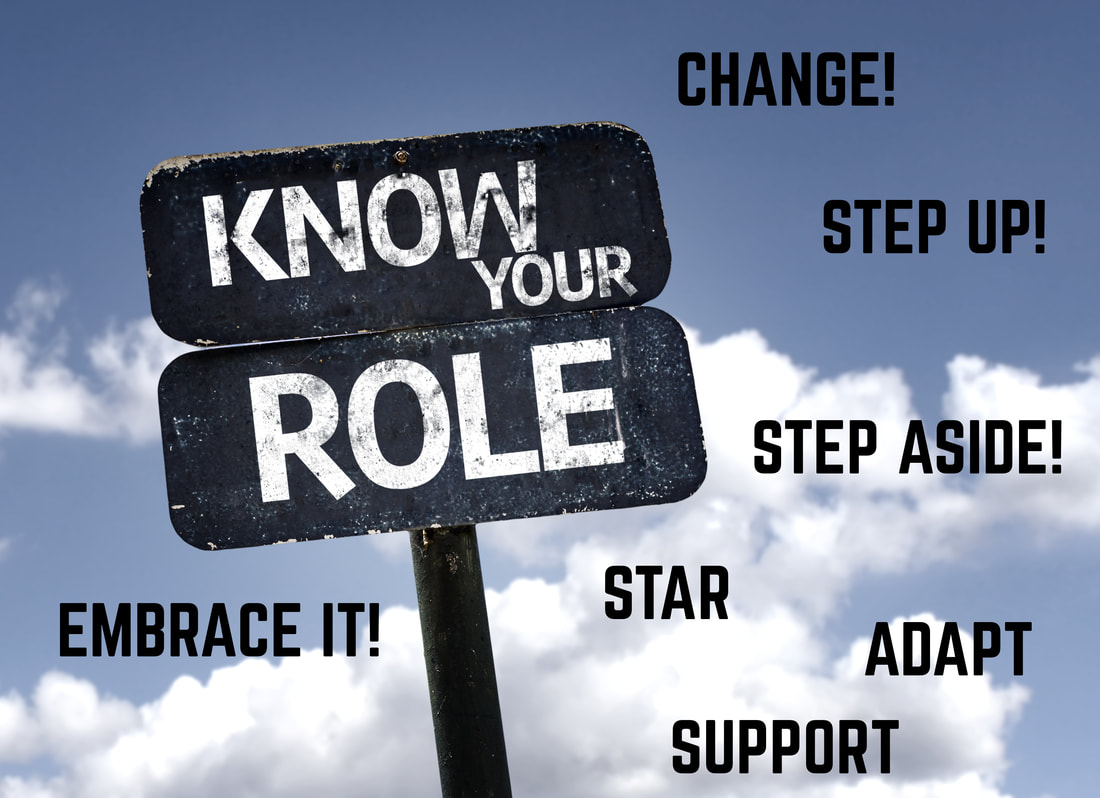Bridging Leadership Lessons from the Workplace and Those Experiences Shaping Today's Youth and Tomorrow's Leaders
 In Jim Collins iconic book, Good to Great, he found the key to having a great organization or team is to get the right people on the bus. He breaks it into 3 key points:
His premise is that if you can first get the right people on the bus, then you can worry about getting them in the right seats. When you start with the right people, they will find the seats that are the best fit for them or will be willing to listen to input from others as they work together to get in the seats that are best for the experience of everyone on the trip. Many times, in life we don’t have the luxury starting out with who we want on our team. We get a promotion at work, we are born into a family, our high school team is made up from the kids in our community. In these situations, you must keep your eye out for those who have the potential to be the teammates you need and who are willing to grow into those teammates. Making sure those on your team are aware of the roles that exist, is essential to promoting alignment to that bigger purpose you are all working towards. Making them aware that a role does not limit or confine you, rather it provides clarity of what is expected and how it connects with others. Stepping Up Your Role What it also does, as pointed out by Jim Collins above, is to allow you to easily adapt to a changing environment. Over time or as quickly during the course of a game. Your team’s number one scorer may have an off night shooting the ball and it is time for you to step up and into the spotlight. When I was a young man in high school, I had one of those nights where nothing seemed to fall. It was a packed gym as the neighboring town, whose team had been struggling all season, was embracing the role of the underdog and created an atmosphere that was anticipating the upset. No matter what I did, shots were not falling, I was making mistakes, and frustration led to uncharacteristic fouls. As the team held me to 15pts below my season average, our senior point guard stepped up and answered the call. J.J. was probably our 6th leading scorer and rarely even shot the basketball, but this night he responded and changed his role to lead us to victory. Now, if I stopped there, it would be a great feel-good moment for everyone. But life isn’t always cut or dry. I was pissed. I was upset about my performance. I was not celebrating the win because I was too busy feeling sorry for myself. But J.J. maintained his role of leader. He called me out for my attitude and said, “hey, it wasn’t your night. Tonight, it was my job to carry the load, just like you have done all season. The bottom line is that WE won.” Remember, Leaders Lead. In my post on 3 Keys to an Empowered Environment I talk about the importance of owning your role. Alan Stein Jr, in his book Raise Your Game, talks about the job of a leader is to sit down with his team and explain the value of each role and how they impact the team. Stein says, “success is not about being the star, it’s about starring in your role.” When Leaders Don’t Lead When managers, leaders, and/or coaches fail to define roles with their team, it is bound to lead to conflict which can create a toxic culture and the downfall of a team. In the sports world you have witnessed owners bringing in a “hired gun” to help make a playoff run. The problem is that new player is now stepping on the toes of people who are already playing in that role and the team struggles to adapt. One addition that on paper, looks to be the magic bullet, ends up being the trigger that causes the team to implode. You also see it in the workplace where a leader is brought in from the outside instead of promoting from within or the changing of the guard as the reins are handed down to the heir. They have no clue to the culture that exists and because they are not the right person to be on the bus, they don’t bother to understand those on the bus and the seats that they occupy. When Roles are in Conflict At work, you will see employees who have a broad definition of their role, cross what are considered to be boundaries that can result in issues with other groups. The “why are you playing in my sandbox” comments start to arise. People get defensive, push back, and reinforce the walls on their silos. Some people see their role as their job and define it only as what is written in the job description. These people may not be the right people to have on the bus. They may be great to meet along the journey, but they may be best to stay on the sideline of your journey and make sure that the travel stops along the way are operating to their best ability. They are important parts of the journey, but they may not be the ones that get you to your destination. Liz Wiseman, in her book Impact Players, points out that high contributors do their jobs really well and are essential to a team. But Impact Players, they do the job that needs to be done. Those are the people you want on the bus, that will make a different, that will adapt their role. Importance of Recognition of the Roles When you get the right people in their roles, Jim Collins pointed out that you don’t have to worry about motivation, because that is inside each of them. While that is true, it doesn’t mean that you can ignore that aspect because as a leader, your actions or lack of actions can have a negative impact which can then demotivate them. Coaches need to balance their feedback and recognition to create inspiration for their team. If a coach only acknowledges the star, then he will gradually lose those who are quietly handling the less visible roles that are absolutely critical to the team’s success. The flip side is when a coach is worried about creating an ego in his star and therefore fails to recognize their contribution and instead focuses on all the other roles. The coach can allow the pendulum to swing too far and can create conflict where none should have existed. This goes beyond sports as we experience it in families where parents make focus on their child who seems to be a child prodigy. The other children can get resentful and start acting out to capture attention of any type. Vice versa, when the problem child requires all the parents focus and the kid who does what is expected is ignored. Feels overlooked and unappreciated. You see it in the workplace where so-called “leaders” will fail to recognize the declining engagement of their employees because the financial numbers are good, or the new opportunity is shiny. They fail to respect and honor the cash cow that supports the other activities, or they may ignore the opportunities for growth and cause slow death because they are too focused on the past. Ultimately Leaders Lead Back in 2022, I wrote about the challenges that can come from asking people to take on roles and making sure people understand and are aligned. In Iron Sharpens Iron, I reference a quote from the great, Tony Dungy. In his book Mentor Leader, he asked “Am I prepared to have great success and not get any credit for it?” A young man I respect who was a former collegiate athlete, is now coaching his own kids and you can tell is focused on teaching them the right way to get through life. He shares in a social media post the following” True leaders are not afraid to step aside and follow if someone can do it better!” How powerful is that?! It’s people like Stephen, who are willing to step up and step aside, when necessary, that demonstrates the importance of people understanding their roles. That is the opposite of Invisible Leadership that is so prevalent today and seeks to bring down the Impact Players that are trying to move us forward. I ask that you embrace your role. Not the role that is assigned, but the role that is needed, to move us forward, Beyond Today.
0 Comments
Leave a Reply. |
AuthorTom Brown - a husband and a father who is simply trying to make a difference. Using my experience as a Manufacturing Executive to connect leadership from the boardroom to the hardwood to help teams grow and develop to make a difference in the lives of others. Archives
May 2024
Categories |
Proudly powered by Weebly

 RSS Feed
RSS Feed

